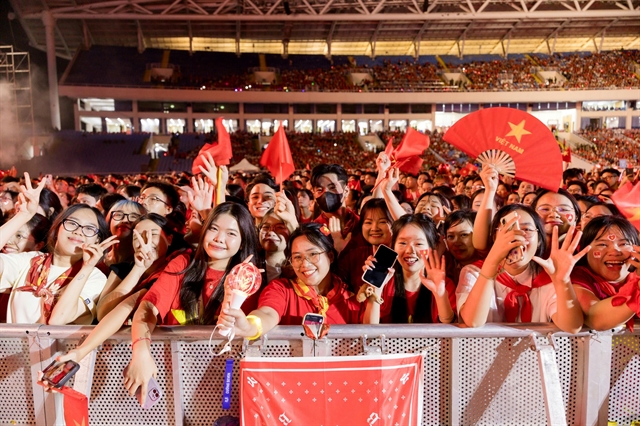 Society
Society


|
| Nội Bài International Airport, Hà Nội. — Photo courtesy of the airport |
HÀ NỘI — The Civil Aviation Authority of Việt Nam said Hà Nội and HCM City’s COVID-19 requirements for foreign arrivals are not conducive to the planned resumption of regular international flights next year.
The CAAV noted that all nine markets – Bangkok (Thailand), Beijing/Guangzhou (China), Phnom Penh (Cambodia), San Francisco or Los Angeles (the US), Seoul (South Korea), Singapore, Taiwan (China), Tokyo (Japan), and Vientiane (Laos) – to be reconnected with Việt Nam have all reported Omicron cases. Việt Nam itself has also just logged the first case, a man returning from the UK to Hà Nội who was quarantined on arrival after a positive rapid test, before genomic sequencing revealed the Omicron infection.
The two airports receiving international flights in the first phase of reopening are Nội Bài in Hà Nội and Tân Sơn Nhất in HCM City, and the two cities’ authorities have issued policies in response to the Omicron threat that threatens to disrupt the resumption of flights, the aviation authority said.
Previously, Hà Nội has said all arrivals from countries with Omicron circulating will have to undergo centralised quarantine, no matter the vaccination status or recovery history of passengers, but CAAV said the city has not issued specific plans regarding the quarantine locations or reception of arrivals.
The centralised quarantine requirement also went against the health ministry’s earlier guidance allowing self-quarantine for arrivals, which the CAAV has used as basis for discussions with partners regarding the reopening of flights, so if Hà Nội insists on the policy then new discussions will be needed and the scheduled international flights will suffer.
The capital city however has appeared to walk back the policy, issuing new guidelines yesterday saying that all double-jabbed or recently recovered from COVID-19 arrivals are to self-quarantine at home or places of accommodation three days after entry and get tested on day 3, which is in line with the health ministry, without mentioning Omicron.
HCM City also requested airlines to provide the list of all passengers as well as their residences/places of accommodation in Việt Nam for the city’s Centre for Disease Prevention and Control within 24 hours prior to entry.
CAAV said currently all passengers will have to install the PC-COVID app and IGOVN according to regulations and file addresses of residences after entry, while prior to boarding, a lot of documents have already been requested, including vaccination certificates or recovery certificates, as well as hotel bookings if needed, so HCM City’s order will also hinder the flight resumption plan.
The aviation authority has asked the transport ministry to work with Hà Nội and HCM City to reach an agreement on standardised protocols.
In the face of the Omicron variant, the Government has also required arrivals to have rapid COVID-19 tests before and after boarding.
According to the CAAV, currently airports in Japan and the US have direct COVID-19 tests with different waiting times and costs. Narita airport in Tokyo for example could deliver COVID-19 results after two hours and the costs could reach 30,000 yen, or US$270.
The order for a rapid test for passengers travelling on new international flights arose outside the health ministry's guidance for foreign arrivals so the CAAV will continue to negotiate with the remaining partners to supplement this requirement.
At Vietnamese airports, the CAAV will assign the Airports Corporation of Việt Nam to coordinate with local health authorities to organise rapid tests, with the passengers expected to pay the fees. However, it warned the requirement will add to the waiting time and likely cause congestion. — VNS